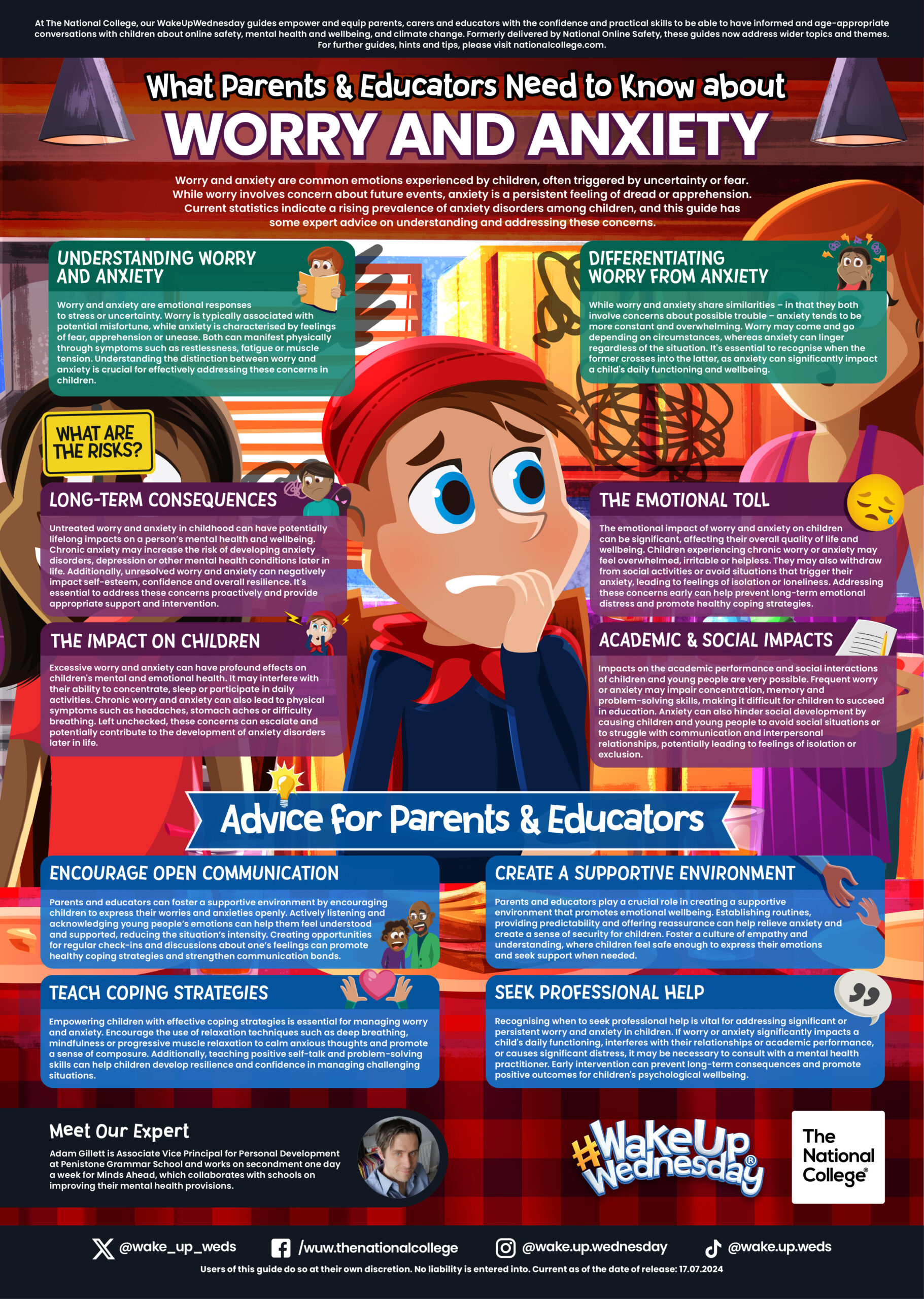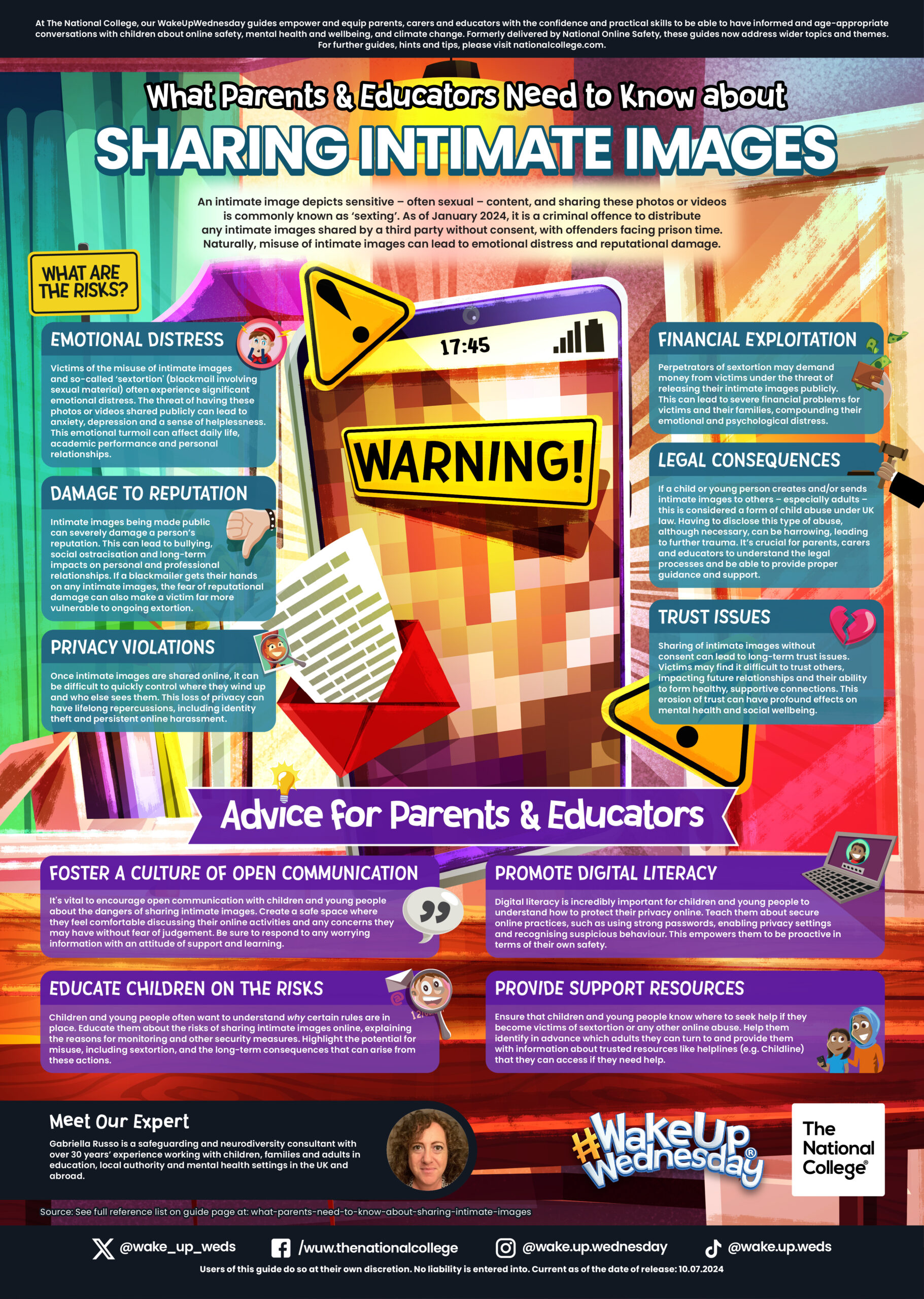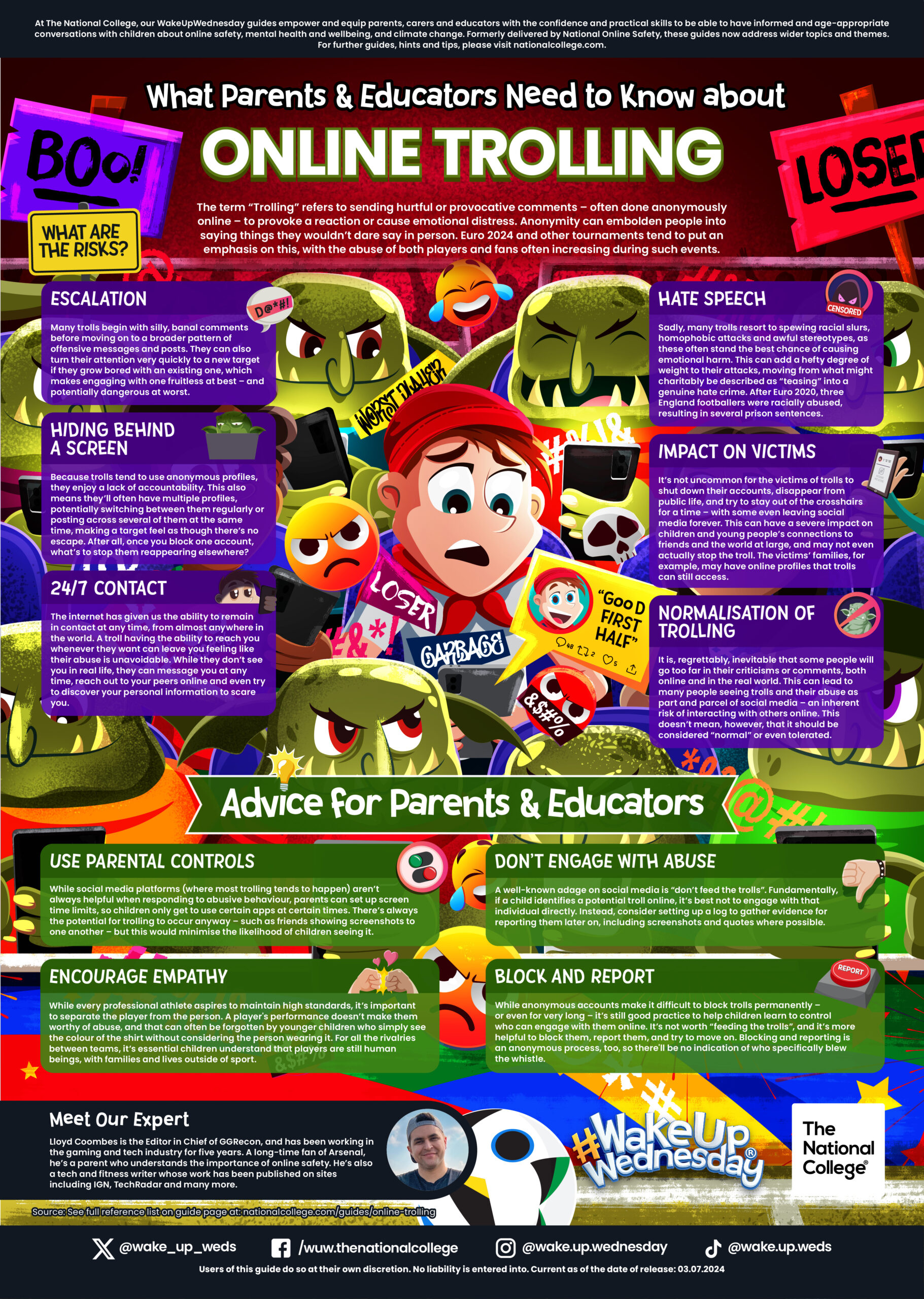

























NHS statistics indicate that the need for mental health support for children and young people in the UK is higher than ever, with 1 in 6 children (16%) reported as being in need of such help. Unchecked worry and anxiety in under-18s is a key contributor to this figure, with roughly 4 in 10 children (37.4%) saying they don’t receive regular support from their school or college
While everyone feels a touch of concern over the future now and then, chronic worry and anxiety can feel unending. This can cause significant damage to young people’s wellbeing – such as losing sleep, feeling emotionally drained, and having their school grades impacted. It’s vital that children and young people suffering from worry and anxiety have effective tools to manage their fears and regain control, and know when to seek further help. This Wake Up Wednesday, we’re offering expert guidance on how to provide that support.
The sharing of nudes, semi-nudes and other explicit material is a prominent issue in today’s digital landscape: both their distribution and their misuse. In fact, the National Crime Agency has issued an alert to hundreds of thousands of education professionals after a study found that 26,718 cases of “sextortion” had been reported in 2023 – more than doubling from the year before.
It’s vital for parents and educators to be aware of how they can safeguard children from exposure to, or involvement in, sharing intimate images – especially given that the sharing of such material featuring under-18s is a serious criminal offence. This week’s guide offers expert insight into the risks of sharing intimate images online, as well as tips on implementing measures to shield children from encountering inappropriate digital content of a sexual nature.

On this website we use first or third-party tools that store small files (cookie) on your device. Cookies are normally used to allow the site to run properly (technical cookies), to generate navigation usage reports (statistics cookies) and to suitable advertise our services/products (profiling cookies). We can directly use technical cookies, but you have the right to choose whether or not to enable statistical and profiling cookies. Enabling these cookies, you help us to offer you a better experience.